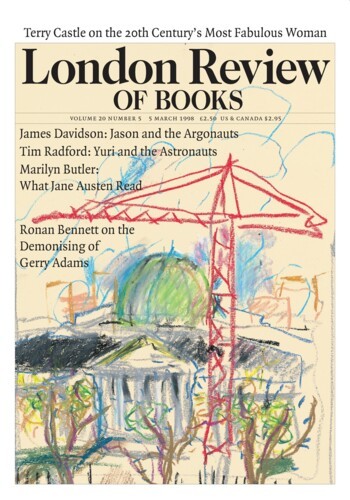The British Way: devolution
H.C.G. Matthew, 5 March 1998
This, if I understand it, is one of those golden moments of our history; one of those opportunities which may come and may go, but which rarely return, or, if they return, return at long intervals, and under circumstances which no man can forecast.’ Thus Gladstone, unsuccessfully commending to the Commons the first Home Rule Bill, for Ireland, in 1886, a Bill which set the terms of discussion about major constitutional change in the United Kingdom and established categories which remain remarkably unchanged today, as we face up to Scottish and Welsh devolution. Gladstone captured the initiative from the federalists and the out-and-out separatists, by presenting ‘home rule’ as a beguiling autochthonous solution. Federalism was and is systematic and logical, but it lacks a historical or national base. Home Rule recognises the existence of nationalist groupings which can express a demand for devolved power through their elected representatives at Westminster, and does so without the need for a priori constitutional planning or a constitutional convention. Federalism would need a new constitution, Home Rule devolves within the old one.‘

